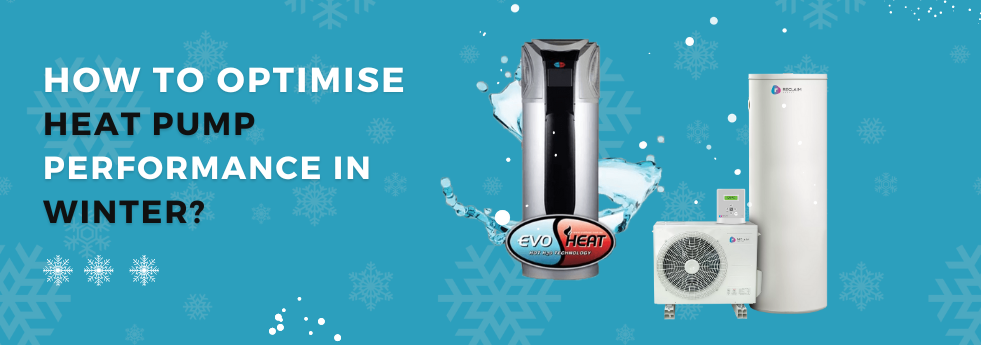Many Aussie households and businesses seek efficient heating solutions to stay warm during winter. Among the most energy-efficient and cost-effective options available is the heat pump.
You may be thinking – How efficient is a heat pump in winter, and can it withstand dipping temperatures? With the correct knowledge and upkeep, your heat pump can operate optimally even during the coldest months.
At Sydney Plumbing Hot Water & Gas, experts in heat pump installation service, we bring essential tips to ensure your heat pump functions optimally throughout the winter season.
Install a Hot Water Heat Pump for Improved Efficiency
Installing a hot water heat pump is an excellent way to transform your home heating during winter. These systems boast superior energy efficiency, harnessing outdoor air’s heat to warm your water, resulting in up to three times more efficiency than traditional heaters and significant energy savings.
Heat pumps are also environmentally friendly as their heat transfer process can significantly reduce greenhouse gas emissions. Contrary to popular belief, a well-maintained heat pump functions reliably even in colder climates. Modern models operate efficiently even in significantly colder temperatures.
Additionally, these systems boast impressive lifespans, often exceeding 15 years. Some models even offer cooling features, further enhancing their versatility. Investing in a hot water heat pump from the leading brands, such as Rheem, Rinnai, Dux, Bosch, etc., can guarantee a lasting, dependable, and sustainable solution. Whether building a new property or upgrading your existing one, installing a heat pump will ensure comfort, efficiency, and significant savings in winter.
Proper Insulation is Essential
The importance of proper insulation in maintaining a comfortable indoor temperature is paramount. Your heat pump might be capable enough, but inadequate insulation will lead to significant heat loss, straining the system and resulting in higher energy costs. Insulation is a barrier to heat flow, keeping your home warm in winter by trapping the warm air inside.
Pay special attention to insulating your roof or ceiling, walls, and floors. Double-glazing windows can also help reduce heat loss, while draught-proofing around doors and windows is essential to prevent cold air from seeping in. Even minor gaps allow an astounding amount of cold air, making your heat pump work harder than required. Implementing proper insulation not only enhances the comfort of your home but also improves the efficiency of your heat pump, reducing energy consumption and saving you money.
Optimise Temperature Settings for Efficient Operation
It’s common to raise the thermostat to offset the cold in winter. However, there may be more efficient ways to operate a heat pump. The key lies in understanding your heat pump’s most effective temperature settings.
Unlike traditional heating systems, heat pumps optimally operate when set at a constant temperature. Frequent adjustments can make the system labour harder, consuming more energy, and setting the thermostat too high doesn’t speed up the heating process—it only strains the heat pump and reduces efficiency. Finding a “sweet spot” where the temperature is relaxed, and the heat pump functions resourcefully is crucial. It usually falls between 20°C to 22°C for most Aussie homes.
Thus, maintaining a consistent temperature allows your heat pump to maintain stable output, curtailing needless power usage and ensuring a comfy home environment. Using your thermostat’s “programmable” or “auto” feature can enhance efficiency. If your daily routine is predictable, programming your heat pump to lower the temperature while you sleep or not at home can result in considerable energy savings without compromising comfort.
Additionally, proper insulation in your home can help retain the warm air generated by the heat pump, maintaining a steady temperature, and reducing strain on the system. Thus, resourceful use of a heat pump in winter does not entirely depend on the hardware; instead, smart, and strategic use of its settings is also pivotal.
And higher thermostat settings will not result in faster heating; it’s all about finding and maintaining the ideal temperature for a warm, comfy, and energy-efficient winter.
Regular Maintenance Recommended for the Best Performance
Regular maintenance is pivotal to maintaining a robust heat pump hot water system throughout winter. Neglecting this aspect can lead to system inefficiencies and, eventually, complete failure. Hence, scheduling an annual inspection with a trusted heat pump hot water service provider like Sydney Plumbing Hot Water & Gas is crucial. This preventive approach includes essential elements such as checking refrigerant levels, cleaning filters, checking electrical connections, and inspecting coils and fans. Doing so ensures your system’s optimal performance and longevity, saves on replacement costs, and reduces excessive energy bills.
Emphasising regular maintenance provides efficient system performance when you need it most, proving that preventive care is a minor expense that yields significant long-term benefits.
Get a Backup Heat Source for Extremely Colder Weather Conditions
While heat pumps work efficiently in cold weather, extremely low temperatures (below 0 degrees) can decrease efficiency. As the temperature drops, there’s less heat in the air for your heat pump to utilise. While this won’t cause your heat pump to stop working, it might struggle to reach the desired temperature setting on colder days.
Therefore, it’s advisable to have a backup heating system in place to ensure consistent comfort. It could be a gas heater, an electric heater, or a wood-burning fireplace. A backup heat source guarantees you remain warm and cosy indoors regardless of the cold weather outside.
Does this mean a heat pump will struggle in winter? It won’t if you’re equipped. Ensure you carry out regular maintenance, ensure proper insulation, use the correct temperature settings, and have a backup ready for extreme weather conditions. Following these inspections, you can rely on your heat pump to keep you warm and cosy throughout the winter.
Contact Sydney Plumbing Hot Water & Gas for a new hot water heat pump installation or service. We will ensure your home is equipped for the colder months with an efficient heating system that delivers comfort, savings, and peace of mind.

 0402 487 444
0402 487 444







